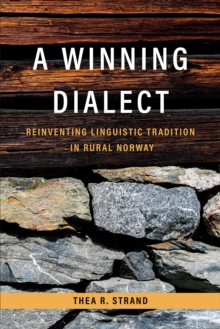
Ancestral Lines : The Maisin of Papua New Guinea and the Fate of the Rainforest Paperback
by John Barker
Part of the Teaching Culture: UTP Ethnographies for the Classroom series
Paperback
Description
More than a century of interaction with colonial and global agencies and forces have brought many changes to the lives of the Maisin people who live on the northeastern coast of Papua New Guinea.
Yet ancestral traditions continue to strongly inform their way of life.
Their beautifully designed tapa cloth, made from the pounded inner bark of the paper mulberry tree, most vividly connects the past with the present.
Using the various stages of tapa cloth production to frame a broader discussion of changes and continuities in Maisin culture (economic pursuit, social arrangements, gender relations, religion, politics, and the environment) Barker offers a nuanced understanding of how the Maisin came to reject commercial logging on their traditional lands.
Viewed in isolation, the decision appears to be a confirmation of tradition over "modernity." Yet the book shows that it is the most recent, and perhaps dramatic, instance in a long chain of improvisations and compromises that have allowed the Maisin to remain true to core ancestral values while participating in wider social, political, and economic systems. Ancestral Lines provides an important counterpoint to the stereotype of indigenous peoples as passive victims of impersonal global forces.
While accessible to most readers, including those with little or no knowledge of Melanesia or anthropology, Ancestral Lines has been designed with introductory anthropology courses in mind.
Each chapter opens with a description of succeeding stages in the creation and use of a piece of tapa cloth.
These, in turn, lead into discussions of dimensions of Maisin life that correspond to the sections and order of most standard introductory textbooks.
Information
-
Item not Available
- Format:Paperback
- Pages:240 pages, black & white illustrations, maps, colour plates
- Publisher:University of Toronto Press
- Publication Date:11/01/2007
- Category:
- ISBN:9781442601055
Other Formats
- EPUB from £17.84
- PDF from £17.84
- Paperback / softback from £21.59
- Hardback from £40.49
Information
-
Item not Available
- Format:Paperback
- Pages:240 pages, black & white illustrations, maps, colour plates
- Publisher:University of Toronto Press
- Publication Date:11/01/2007
- Category:
- ISBN:9781442601055










